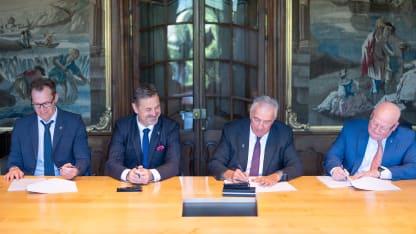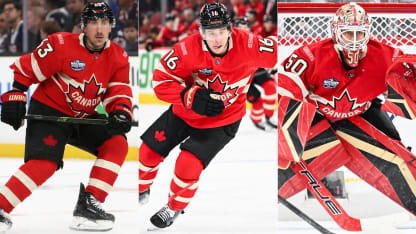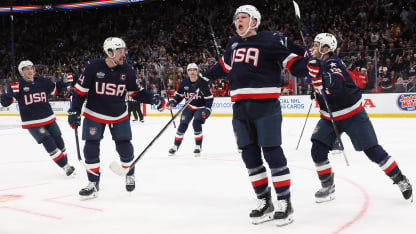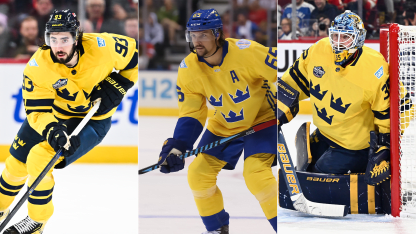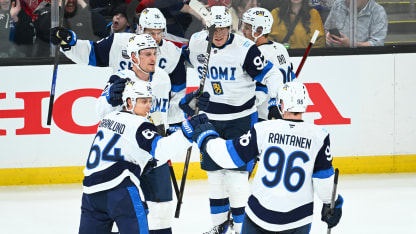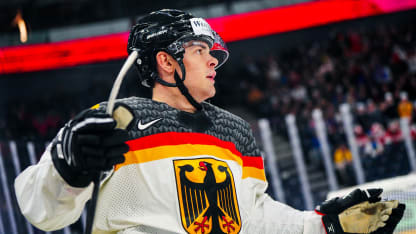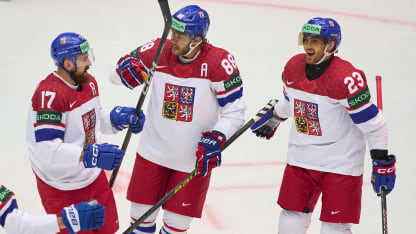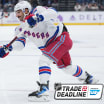NHL player participation in the Olympic Winter Games Milano Cortina 2026 was finalized on Wednesday.
The International Ice Hockey Federation announced a landmark agreement to send NHL players to the Olympics for the first time in 12 years following a meeting at its headquarters in Zurich, Switzerland, that featured representatives from the NHL, NHL Players' Association and the International Olympic Committee.
"There were a bunch of issues that are typically dealt with between the NHL, the IIHF and the IOC that needed to be dealt with, and we ultimately got those done," NHL deputy commissioner Bill Daly said from Zurich, where he was present to sign the agreement. "We're thrilled. It's all good."
The agreement marks the return of the best players in the world to the Olympic stage for the first time since the 2014 Sochi Games.
"We are pleased to confirm that NHL players will be participating in the 2026 Olympic Games," NHL Commissioner Gary Bettman said. "Olympic participation will showcase the skill and talent of NHL players on an international stage. We are proud to collaborate with the IIHF, NHLPA, and IOC to bring the best hockey players in the world to the Olympics and make this happen in a way that benefits the game globally."
IIHF president Luc Tardif called Wednesday "a tremendous day for international ice hockey and for fans across the globe.”
"At the initiative of the IIHF, we have worked collaboratively with NHL and NHLPA in close collaboration with the IOC and Milano Cortina Organizing Committee to make this a reality," Tardif said. "Bringing the best players in the world back to the Olympic Games in 2026 is a major step forward for our sport."
The agreement "contemplates" but currently does not guarantee NHL player participation at the 2030 Olympics in the French Alps, Daly said.
"We have every intention of going to 2030," Daly said. "We expect to be there, but for better or worse that's a whole different negotiation."
Daly said this agreement is consistent with previous Olympic agreements the NHL has had with the IIHF and the IOC as it relates specifically to player living situations in the Olympic village, hotel and ticket arrangements for one guest per player, members of the NHL Board of Governors and their guests, and the NHL's role in the hockey operations of the tournament.
Daly also said the NHL will be able to secure more hotel rooms and tickets at a cost.
"I think we broke new ground a little bit in terms of our commercial rights associated with the Olympics, use of the integrated marks and content capture that we probably haven't had in the past," Daly said. "I think those are all advances in terms of what we're doing. We will have the ability to utilize Olympic content in a different and better way than we have in the past."
The men's tournament at the 2026 Olympics runs from Feb. 11-22. Games will be played at two venues in Milan: Milano Santagiulia Ice Hockey Arena and Milano Rho Ice Hockey Arena.
Daly confirmed all games will be played on the NHL-sized 200 feet long by 85 feet wide ice sheet.
"I know that's been speculated on by others in the media that it would be some hybrid," Daly said. "No, it's 200 by 85. I think that will be the case going forward as well."
Daly said each national association for the 12 teams in the tournament is required to submit a list of 42 skaters and five goalies by Oct. 15.
Players on those lists will be subject to Olympic drug testing rules and regulations.
Final preliminary rosters of 22 skaters and three goalies must be submitted by Dec. 31, but Daly said there will be changes allowed between then and the start of the tournament on Feb. 11 if they are required because of injuries.
Each team has already announced the initial six players chosen to be on its preliminary rosters.
In the tournament, the 12 teams will be divided into three groups.
Group A: Canada, Switzerland, Czechia and France
Group B: Finland, Sweden, Slovakia, Italy
Group C: United States, Germany, Latvia, Denmark
The three group winners and the top second-place team will automatically advance into the quarterfinals. The remaining eight teams will play a qualification round to determine the last four teams to advance into the quarterfinal round, which begins the elimination stage.
The quarterfinals will be played Feb. 18, followed by the semifinals on Feb. 20. The bronze-medal game will be Feb. 21, and the gold-medal game Feb. 22. The semifinals and both medal-round games will be played at Milano Santagiulia Ice Hockey Arena.
"Best-on-best international tournaments like the Olympics provide the opportunity to create extraordinary moments for our players and fans alike," NHLPA executive director Marty Walsh said. "The return to the Olympics marks a monumental moment for hockey and we thank our partners -- the NHL, IOC and IIHF -- for this collaborative process. The skill and passion on display in Milano Cortina will build off the excitement of the 4 Nations Face-Off and continue our game's global growth."
This will be the sixth time NHL players will participate in the Olympics, starting with 1998 in Nagano, when Czechia won the gold medal.
Canada defeated the United States to win the gold in Salt Lake City in 2002. Sweden won the gold-medal game against Finland in Torino in 2006.
In 2010, Sidney Crosby scored the “Golden Goal” in overtime to lift Canada past the United States in the gold-medal game on home ice in Vancouver.
Canada won gold again in Sochi in 2014, defeating Sweden in the gold-medal game.
"The IOC welcomes the agreement between the International Ice Hockey Federation, the National Hockey League, and the National Hockey League Players' Association," IOC president Kirsty Coventry said. "This agreement will lead to the participation of all the best ice hockey players of the world in the Olympic Winter Games Milano Cortina 2026 and the Olympic Winter Games 2030. All the parties who were involved in coming to this agreement should be commended for this excellent result."
